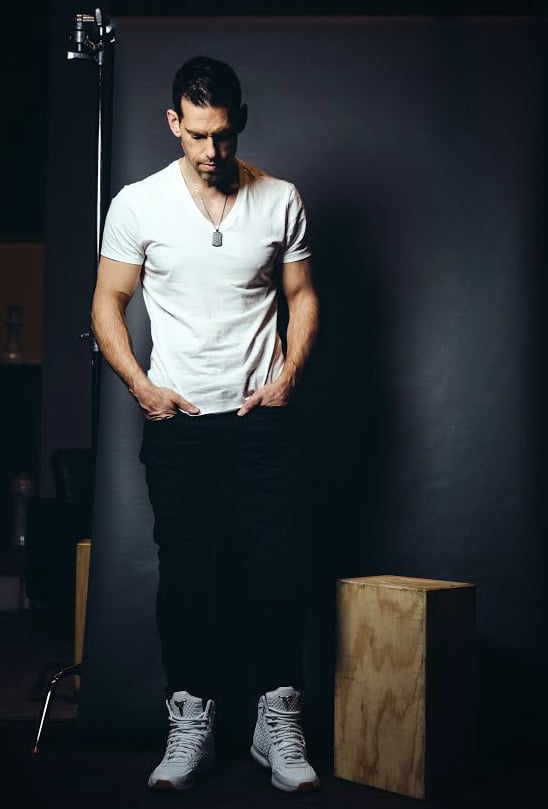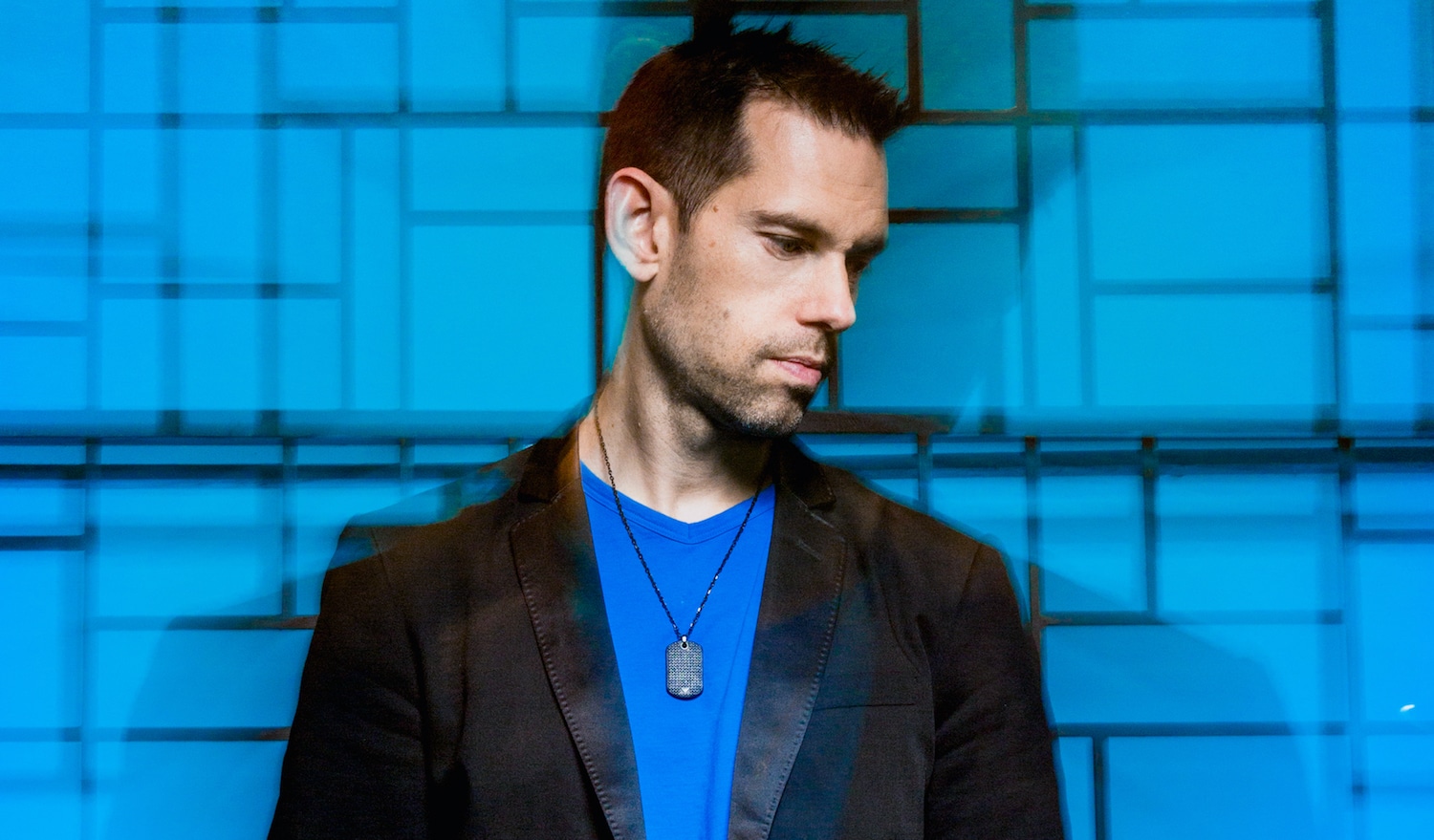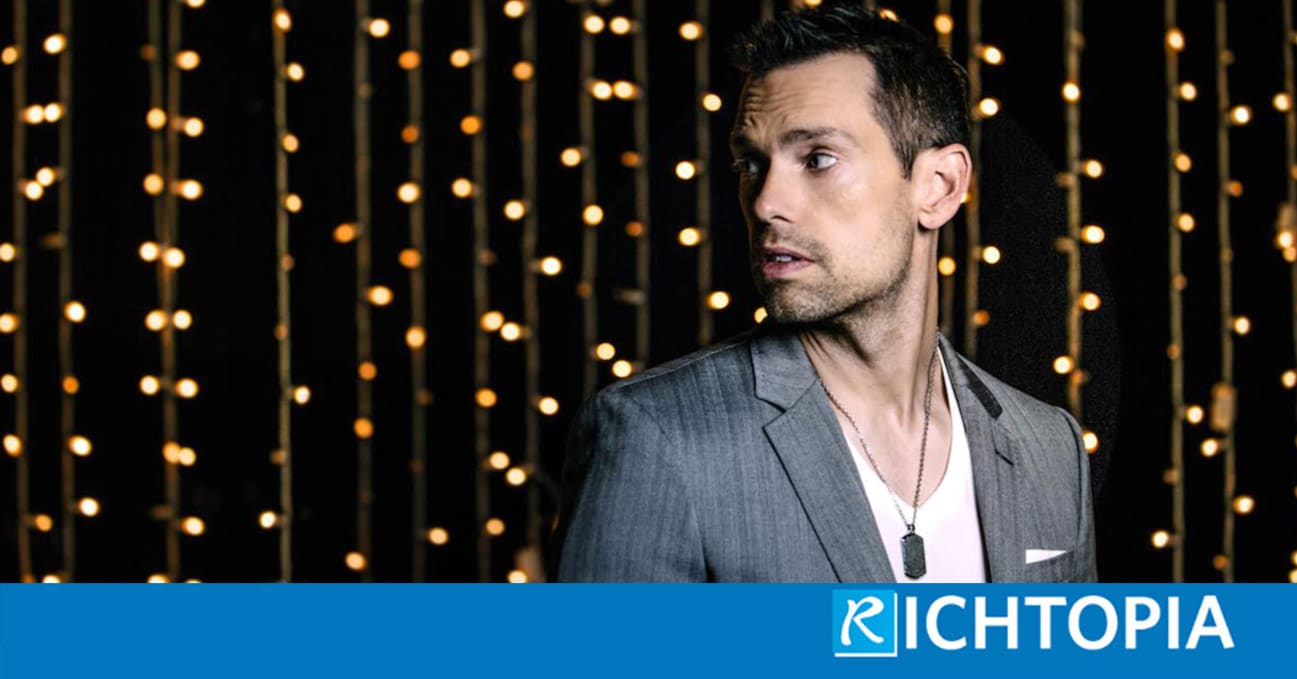Quest Nutrition Founder turned motivator Tom Bilyeu is host of the new entrepreneurial mentorship show, Impact Theory. Impact TheoryTM, is Tom’s new pay-it-forward company aimed at unlocking human potential and inspiring future entrepreneurs. Designed to help others build the mindset necessary for success, Impact Theory’s marquee program is a talk show featuring insightful interviews with top thinkers, entrepreneurs, and celebrities.
More than a digital content platform, Impact Theory aims to shape the next generation of culturally poignant businesses, and foster content creators, innovators, and leaders who embody the entrepreneurial spirit.
Today, Tom’s mission is to accelerate mission-based businesses and create empowering media-based IP. His goal is to expand people’s vision of wellness from just the body, to a 360-degree view that encompasses body and mind. Personally driven to help people develop the skills they will need to improve themselves and the world, Tom is intent to use commerce to address the dual pandemics of physical and mental malnourishment.
I had a chance to interview Tom on my radio show Get Notified, and I have pulled the good nuggets to share with my Richtopian readers.
Ryan Foland: Tom, why don’t you share a little history of your path? You’ve helped people become physically healthy and now you’re helping them become more mentally healthy, giving them amazing content with amazing guests on your new show. How did this all start for you? What’s the backdrop?
Tom Bilyeu: Well, the backstory begins probably about 17 years ago now, when I saw the movie The Matrix — it really gave me a new way to think about my life. Up until that point, I had the feeling that I could do more, I could be more, but I felt trapped, but I didn’t know by what. Watching that movie really made me realize it was my own mindset that was holding me back, and it’s become a perfect metaphor for me for human accomplishment and potential and the difference between having potential and actualizing that potential. That’s something that I talked to Michael Strahan about on Impact Theory, because he credits the movie The Matrix with impacting his football career, and he said it’s a big part of the reason that he got the record for the most sacks in a single season and how he went on to become a Hall of Fame NFL football player.

While we founded it for three very different reasons, for me, I had grown up in a morbidly obese family so it was all about wanting to help my mom and my sister really be happy. That was the driving engine for me to work so hard at Quest, and like you said, we took it from nothing to being valued at over a billion dollars in less than five years. It was a pretty miraculous ascent. We were the second fastest-growing company at one point according to Inc. Magazine. I mean, just an absolute thrill ride, but for me wellness was always a 360 degree thing that had to encompass the body and the mind. I’ve stepped into a founder role at Quest and now have founded a new company, Impact Theory, which is designed to incubate mission-based companies and content that is built around empowering mythology and ideology and bring that to the world, so that’s what we’re doing now.
Ryan Foland: Wow, what a story. It’s inspiring to hear somebody who’s successful financially come out there and say, “Well, financial success doesn’t always lead to happiness.” I think that’s a really great takeaway.
Tom Bilyeu: Thank you.
Ryan Foland: Now, Impact Theory, is it structured as an incubation?
Tom Bilyeu: It’s really two things. We have the show, and that very much is a podcast and people can subscribe on iTunes. It’s also we film it, so it’s filmed like a TV show and you can watch it on YouTube. Like you said, we have just some of the highest-level successful people on the show. We’ve had guests like Tim Ferriss, Michael Strahan and Wyclef Jean for example. We keep getting really incredible people. It picks up where Inside Quest left off. Inside Quest was viewed over 150 million times and was just really a smash success and we’re super excited to have been a part of that, and wanted to turn it into its own company. The reason that we wanted to do that it to solve a real problem.
What we were doing at Quest Nutrition was addressing one of what I consider to be two pandemics that we face as a society right now. The first is the body, and that’s very easy for people to understand because it’s so visual. When somebody is suffering from a diet-related disease like diabetes it’s very visual, right? Usually they’re very heavy, and then if they get necrosis beginning to set in from the diabetes they’re literally getting parts of their body amputated. It’s such a visible and emotionally destructive disease. Everybody knows what’s going on there and they understand that we need to mobilize. The second pandemic is the pandemic of the mind, and we have a ubiquity of depression and anxiety here in the U.S. The second-leading cause of death among young men is suicide.
Ryan Foland: Wow. Pandemic of the mind. Talk to me more about that.
Tom Bilyeu: It’s the number one cause of death for young men in places like Australia. I mean, it’s just really crazy to me that we have this amazing technological advancement. The world is getting better and better. I don’t know if you’ve ever read the book The Rational Optimist by Matt Ridley, but he talks about how basically progress is a one-way street and it’s gotten better and better for the last 80,000 generations, and so to think that suddenly it’s going to turn around and go negative doesn’t make a lot of sense. In spite of that, we’ve got this just massive pandemic of depression and anxiety, which to me comes down to a deterioration of mythology and understanding really how to incorporate mythology and ritual into your life.
Ryan Foland: What you’re saying is that maybe the recipe for better mental health and the recipe for ultimate success and happiness is out there.
Tom Bilyeu: 100%, and it really comes down to execution. The brain is just like the body. If you train the body you know it will respond, and people have just a real intuitive understanding of that. If I go into the gym every day, I eat right and I lift this weight, and then I push myself to lift a little more and every day I push myself, that I can completely transform my physique, I can transform what I’m capable of doing, I can actually lift heavier weights. No one denies that. No one is going to say, “Oh no, that will never work,” right? Everybody gets it. When you talk about the mind, because it’s invisible, because you can’t see the restructuring of the brain, that people discredit it. I mean, it was only recently that people finally realized that the brain has this thing called neuroplasticity, and that at every age up until death your brain will change in accordance with the stimulus. If you’re a nine-year-old and you force yourself to learn the tango, your brain will actually restructure.

Ryan Foland: Wow.
Tom Bilyeu: Understanding the neuroanatomy of the brain is job number one if you’re trying to accomplish something in your life.
Ryan Foland: Yeah, it’s interesting you point that out. It’s the power of understanding how to utilize your brain’s software, right?
Tom Bilyeu: Definitely, man. And that the ability to go really deep and focus on one thing is how you gain mastery. It’s how you get great. That to me is an obsession.
Ryan Foland: What is trick to better using our human technology?
Tom Bilyeu: To me it’s really about acquiring real skills. You should be learning, learning, learning. If you’re in college the mode is learning. It’s about skill acquisition, knowledge acquisition. It’s not about being out and talking about it first. Here’s the thing. You need to become capable of the extraordinary. Talking about something isn’t going to serve you or your audience. Yeah, I would say head down, do the work, build something that matters, and the rest will take care of itself.
Ryan Foland: Okay, so that’s number one. That’s number two top tip for tapping into your superhuman potential?
Tom Bilyeu: You have to build real relationships. You just have to be willing to put in the work and go deeper than just the surface communication, but I’ve met some extraordinary people online that have then made contact in real life. It’s actually pretty amazing the kinds of relationships that can start over Twitter or start socially. For instance, Steve Aoki, the DJ, he and I had learned about each other online first before we ever connected. There’s just a lot of people like that. Jason Silva is another great example, and I don’t know if your listeners know who Jason Silva is, but man, if you don’t, go deep.
He’s the host of Brain Games and just an incredible human being and a really good friend, but that all started online. When you get these relationships in person and can really begin to develop something that’s more real, then you can build something lasting. Even just having the ongoing communication of sharing things. Jason Silva, for instance, just an incredible articulator via social media. His ability to use the technology to put out ideas … He’ll go on a tirade and just put 10 clips from movies that really impacted him, which actually made me feel closer to him even though it wasn’t aimed specifically at me. There are really cool ways that I think people can express themselves and connect, especially online. Be a human first. Be real, connect, and build relationships.
Ryan Foland: Do you have any additional advice on how to better connect with people?
Tom Bilyeu: Most definitely. The key thing is find a way to add value to somebody’s life. First of all I only reach out to people that I have an authentic interest in, like I’ve really connected to their content or just their views on life. Once I can approach somebody from a genuine place of appreciation, especially if we have stuff in common, that becomes very, very easy for me. Reaching out a lot of times, trying to figure out what’s meaningful to them, especially if you’re reaching out to somebody that has a big following.
Figure out what it is that they’re trying to do with their community, figure out how you can add value. A lot of times it’s just commenting. It’s sharing their stuff. It’s commenting on it. It’s helping other followers in their community, which to me at Impact Theory, that’s just such a huge thing for me, when the members of the community are helping each other. When I see that I’ll reach out to the people that are helping the other people and just thank them. If you’re trying to get on my radar, helping other people in the community is like #1.
Ryan Foland: Such a great Pay it Forward attitude. If you could leave Richtopians with one final thought, what would it be?
Tom Bilyeu: Here’s the thing. I’m going to deliver crushing value right now, and the bad news is nobody is going to do it. That is because it’s the truth. There is no shortcut, but getting out and actually learning about social media is the key to getting good at it. Facebook is my obsession right now, learning about their audience segmentation and how rapidly they’re evolving that and video ads. It is a world unto itself. Educating ourselves, the team here at Impact Theory, that’s all we think about, is educating ourselves and passing around information internally with what we learn. There is no substitute for getting good at things.
- Also be sure to read 5 Things You Should Do Every Day Before 8 A.M. to Get More Done





